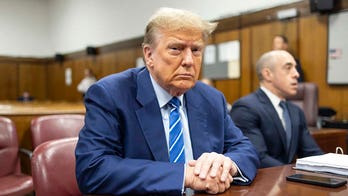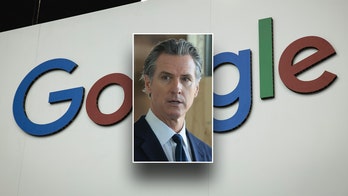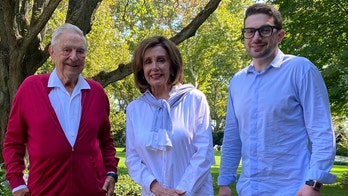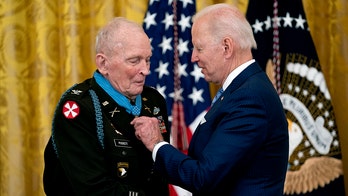Rep. King calls on Amb. Susan Rice to resign
GOP lawmaker wants accountability in Libya attack
The Obama administration and re-election campaign appeared to give conflicting statements Sunday about the president’s knowledge on the terror attack on the U.S. Consulate in Libya, according to the Romney camp, which has joined in calling for a clearer explanation of the assault and the U.S. response.
Obama campaign senior adviser David Axelrod said on CNN’s “State of the Union” that the president called the Sept. 11 strike an act of terror “the day after it happened.”
However, David Plouffe, a senior White House adviser, said later Sunday that “in the days after” the attack on the consulate in Benghazi, Libya, it was “not clear” the strike was an act of terror.
“This ... obviously was a very, very fast-moving period of time,” Plouffe said on NBC’s “Meet the Press.” "I think now, based on the recommendations and the investigation of the intelligence community, they made the decision to conclude that this was a terrorist attack.”
Axelrod was apparently referring to Obama's public statement on Sept. 12 in which he referred to "acts of terror." However, Obama did not explicitly label the attack terrorism at the time -- no administration official did so until the following week.
Ryan Williams, Romney campaign spokesman, said in a statement: "The Obama White House and the Obama campaign can’t seem to get their stories straight on the attack on our consulate in Libya. This morning, they offered conflicting stories on if and when the President thought the attack in Benghazi was a terrorist act."
"These inconsistencies raise even more questions about the confusion and mixed messages that have marked the White House’s response from the very beginning," Williams added.
U.S. Ambassador to the United Nations Susan Rice said Sept. 16 that the attack was a “spontaneous” response to an anti-Islamic movie trailer and not a pre-planned or terrorist attack.
Amid the questions about the administration's handling of the tragedy after the attack are concerns about security in the months preceding it. The New York Times reported Monday that the aggressive response by Libyan security guards to a small bombing in June may have given the U.S. team a false sense of security about the preparedness for a bigger strike. Training and security had been stepped up earlier this year at the recommendation of a Special Forces team.
Sen. Bob Corker also is among Republicans calling for more and complete answers about the attack on the U.S. Consulate in Libya -- where four Americans were killed -- calling the administration’s response so far “bizarre.”
“It seems that with each passing day, the situation surrounding the administration’s response to the terrorist attack on the U.S. Consulate in Libya becomes more bizarre. The United States Congress and the American people are still waiting to get straight answers,” Corker told National Intelligence Director James R. Clapper Jr. in the letter dated Sept. 29.
The letter follows Clapper taking responsibility last week for the administration’s initial response and acknowledging the assault was a “deliberate and organized terrorist attack.”
Corker, a member of the Senate Foreign Relations Committee, also said Plouffe’s comments on Sunday show the administration’s “deafening silence” on the attack in Libya is evidence of “gross negligence or incompetence.”
Rep. Peter King, the New York Republican who heads the House Homeland Security Committee, on Friday called for Rice to resign over her "misleading" statements. Democrats leaped to her defense, accusing King of playing politics.
Corker also joins in the growing concern about whether the consulate, as well as U.S. Ambassador J. Christopher Stevens and the three other Americans killed, had adequate security and why FBI investigators have yet to reach the crime scene.
“Yet just 18 days ago the administration apparently judged that it was appropriate for our consulate to be lightly guarded and it was safe for our ambassador to come through the city with a small security detail,” Corker wrote. “What has changed in Libya in such a short time that even FBI agents, our most elite investigative personnel, cannot safely enter the city? What has led to such a precipitous decline?”





